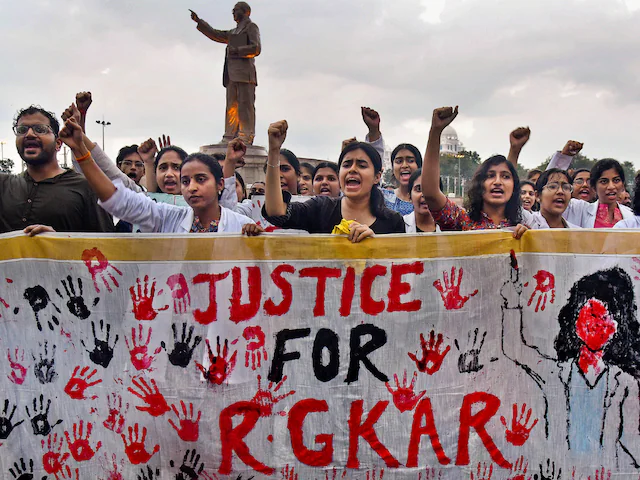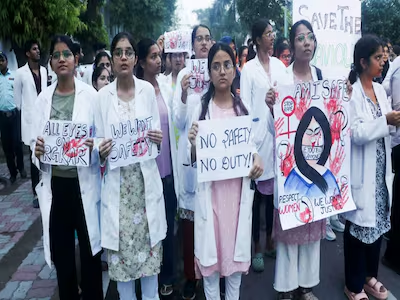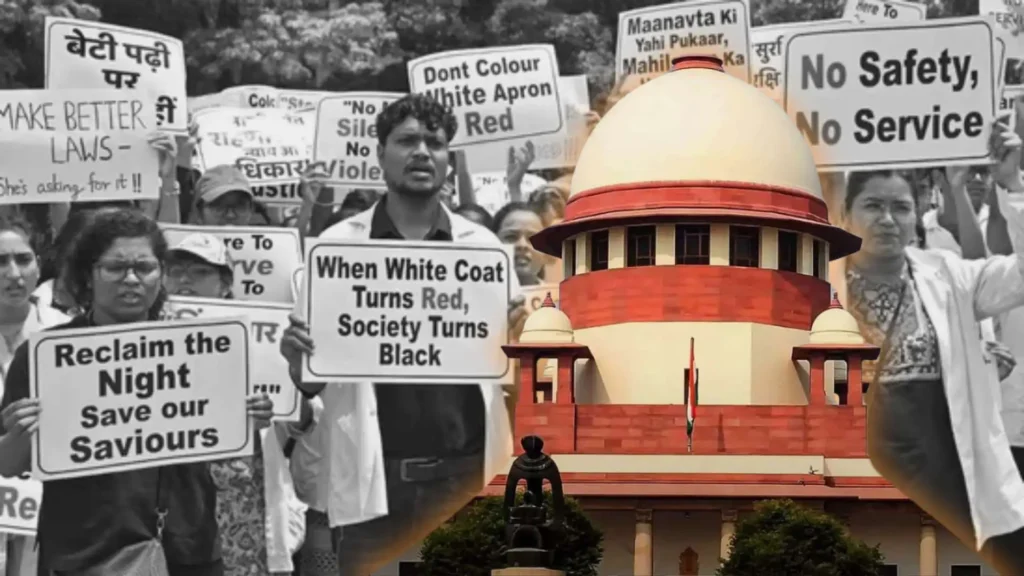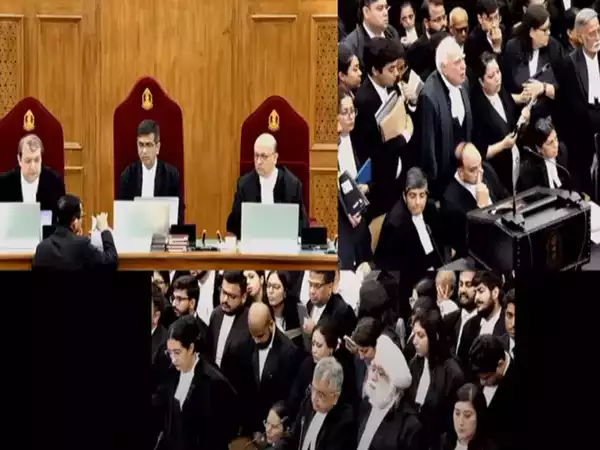Table of Contents
The Kolkata rape-murder case has shaken the city and sparked widespread outrage. The incident has not only drawn public ire but has also led to a significant standoff between medical professionals and the authorities, with doctors at RG Kar Medical College and Hospital leading a protest that has disrupted healthcare services. In response to this growing crisis, the Supreme Court of India has intervened, directing the protesting doctors to return to work immediately. This article delves into the details of the case, the ensuing protests and the Supreme Court’s directive, while also exploring the broader implications for justice and healthcare in West Bengal.
The Tragic Incident: Kolkata Rape-Murder Case Overview
The rape and murder of a young woman in Kolkata’s RG Kar Medical College and Hospital has sent shockwaves across the country. The victim, a student at the hospital, was found dead in suspicious circumstances, leading to widespread allegations of sexual assault and murder. The incident has raised serious questions about safety and security within medical institutions, sparking outrage among the public and within the medical community itself.

According to reports, the victim was last seen entering the hospital premises and her lifeless body was discovered later in a secluded area of the facility. The gruesome nature of the crime has led to an outpouring of anger, with demands for swift justice and strict action against the perpetrators.
Doctors’ Protest: A Crisis in Kolkata’s Healthcare System
In the wake of the incident, doctors at RG Kar Medical College and Hospital began a protest, demanding justice for the victim and immediate action against those responsible for the crime. The protest, which quickly gained momentum, led to a significant disruption of medical services in the hospital and several other healthcare facilities across Kolkata. Many doctors and medical staff participated in the strike, refusing to return to work until their demands were met.

The protest highlighted the deep-seated frustrations within the medical community, not only regarding the safety of healthcare workers and students but also about broader issues such as working conditions, security measures and the state’s response to such incidents.
Supreme Court’s Intervention: A Directive to Resume Duties
As the protest continued to escalate, the Supreme Court of India stepped in to address the situation. Recognizing the impact of the strike on patients and the broader healthcare system, the Court issued a directive ordering the protesting doctors to return to work immediately. The Court emphasized the importance of maintaining essential medical services, particularly in light of the ongoing crisis and warned of potential legal consequences if the doctors failed to comply with the order.

The Supreme Court’s intervention was seen as a critical move to restore normalcy in Kolkata’s healthcare system. However, the directive also sparked further debate, with some arguing that the doctors’ concerns should not be dismissed in the name of expediency.
Public and Political Reactions
The Supreme Court’s order has received mixed reactions from various quarters. On one hand, the public and patient advocacy groups have welcomed the move, citing the urgent need to restore medical services and ensure that patients do not suffer as a result of the strike. On the other hand, many within the medical community have expressed dissatisfaction with the order, arguing that it fails to address the underlying issues that led to the protest in the first place.

Political reactions have also been divided. The ruling Trinamool Congress (TMC) in West Bengal has supported the Supreme Court’s directive, emphasizing the need for law and order to be maintained. However, opposition parties have criticized the state government’s handling of the situation, accusing it of failing to protect healthcare workers and students and allowing the crisis to escalate.
Implications for Healthcare and Justice
The Kolkata rape-murder case and the subsequent protest by doctors have underscored the complex challenges facing the healthcare system in West Bengal. The incident has raised serious concerns about the safety of healthcare workers, particularly women and the need for stronger security measures within medical institutions.
The Supreme Court’s intervention, while necessary to restore essential services, also highlights the need for a more comprehensive approach to addressing the concerns of healthcare professionals. Ensuring justice for the victim, improving security in hospitals and addressing the broader grievances of the medical community will be crucial in preventing similar incidents in the future.
Conclusion
The Kolkata rape-murder case has exposed deep-rooted issues within the healthcare system, leading to a crisis that required the intervention of the Supreme Court. As doctors return to work following the Court’s directive, the focus must now shift to ensuring justice for the victim and addressing the broader concerns raised by the medical community. The incident serves as a stark reminder of the need for vigilance, security and a commitment to justice in protecting the most vulnerable members of society.
Sources: Hindustan Times, Times of India
For Latest News Updates Click Here
